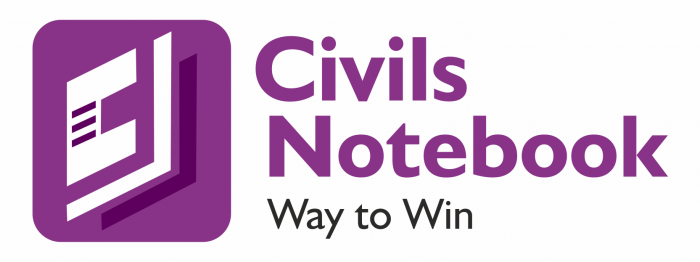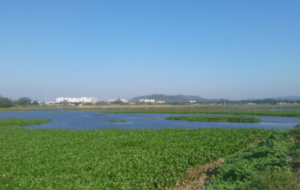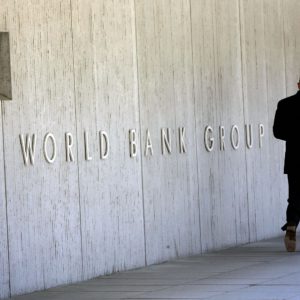Retail inflation cools to 6.77% in October from 7.41% in September
- India’s retail inflation cooled to 6.77% in October from 7.41% in September, slipping below the 7% mark for the first time in three months and only the second time since April’s eight-year high mark of 7.8%.
- This is the tenth month in a row that inflation has been over the 6% upper tolerance threshold mandated for the Reserve Bank of India (RBI). The last time consumer price inflation was below the 7% mark was in July, at 6.71%.
- Rural consumers continued to face 7% inflation in October, slightlylower than the 7.6% in September, while urban India consumers’ price rise eased to 6.5% from 7.3% in the previous month.
About Inflation
inflation (or less frequently, price inflation) is a general rise in the price level of an economy over a period of time. When the general price level rises, each unit of currency buys fewer goods and services; consequently, inflation reflects a reduction in the purchasing power per unit of money – a loss of real value in the medium of exchange and unit of account within the economy.
As per RBI, an inflation target of 4 per cent with a +/-2 per cent tolerance band, is appropriate for the next five years (2021-2025).
Types of Inflation
Demand-Pull Inflation
This type of inflation is caused due to an increase in aggregate demand in the economy.
Causes of Demand-Pull Inflation:
- A growing economy or increase in the supply of money – When consumers feel confident, they spend more and take on more debt. This leads to a steady increase in demand, which means higher prices.
- Asset inflation or Increase in Forex reserves– A sudden rise in exports forces a depreciation of the currencies involved.
- Government spending or Deficit financing by the government – When the government spends more freely, prices go up.
- Due to fiscal stimulus.
- Increased borrowing.
- Depreciation of rupee.
- Low unemployment rate.
Effects of Demand-Pull Inflation:
- Shortage in supply
- Increase in the prices of the goods (inflation).
- The overall increase in the cost of living.
Cost-Push Inflation
This type of inflation is caused due to various reasons such as:
- Increase in price of inputs
- Hoarding and Speculation of commodities
- Defective Supply chain
- Increase in indirect taxes
- Depreciation of Currency
- Crude oil price fluctuation
- Defective food supply chain
- Low growth of Agricultural sector
- Food Inflation
- Interest rates increased by RBI
Cost pull inflation is considered bad among the two types of inflation. Because the National Income is reduced along with the reduction in supply in the Cost-push type of inflation.
Atomic energy, hydrogen power India’s net zero plan
- India on November 14, 2022 announced its long-term strategy to transition to a “low emissions” pathway at the United Nations Conference of Parties (COP) ongoing in Sharm el-Sheikh, Egypt, which is premised on expanding its nuclear power capacity by at least three-fold in the next decade, apart from becoming an international hub for producing green hydrogen and increasing the proportion of ethanol in petrol.
- five-decade journey” to net zero, or being carbon neutral by 2070 — a commitment made by Prime Minister Narendra Modi at Glasgow, where the 26th COP was held last year.
- While 195-member countries, signatories to the UN climate agreements, were obliged to submit the long-term document by 2022, only 57 — to which India is the latest addition — have done so.
Modi in Bali for G-20 meet, to focus on global issues
- Prime Minister Narendra Modi is set to meet ‘several’ leaders at the meet in Bali, likely to invite them to the 2023 summit under India’s presidency
- Prime Minister Narendra Modi will leave for Bali on November 14 to attend the G20 summit on November 15-16.
- Food and energy security, and post-COVID-19 health issues will be at the top of the agenda in sessions at the summit in the Indonesian city.
- This G20 summit is particularly special because India will hold the presidency of the G-20 summit from December 1, 2022 for a one-year period, and the presidency handover will take place during the summit in Bali
About G20
- The G20 was formed in 1999 in the backdrop of the financial crisis of the late 1990sthat hit East Asia and Southeast Asia in particular.
- It aims to secure global financial stability by involving middle-income countries.
- Together, the G20 countries include 60 % of the world’s population, 80 % of global GDP, and 75 % of global trade.
- Members:
- Argentina, Australia, Brazil, Canada, China, France, Germany, India, Indonesia, Italy, Japan, Republic of Korea, Mexico, Russia, Saudi Arabia, South Africa, Turkey, the United Kingdom, the United States and the EU.
- Spainis invited as a permanent guest.
- Argentina, Australia, Brazil, Canada, China, France, Germany, India, Indonesia, Italy, Japan, Republic of Korea, Mexico, Russia, Saudi Arabia, South Africa, Turkey, the United Kingdom, the United States and the EU.
- Presidency:
- The presidency of the G20 rotates every year among members, and the country holding the presidency, together with the previous and next presidency-holder, forms the ‘Troika’ to ensure continuity of the G20 agenda.
- Italy, Indonesia, and India are the Troika countries right now and Indonesia holds the current Presidency.
- The presidency of the G20 rotates every year among members, and the country holding the presidency, together with the previous and next presidency-holder, forms the ‘Troika’ to ensure continuity of the G20 agenda.
- Mandate:
- The G20 has no permanent secretariat. The agenda and work are coordinated by representatives of the G20 countries, known as ‘Sherpas’, who work together with the finance ministers and governors of the central banks.
- The primary mandate of the grouping is for International Economic cooperation with particular emphasis to prevent future financial crises across the world.
- It plays a significant role in shaping the global economic agenda.
- From 1999-2008 the forum exalted from a grouping of Central bank governors and finance ministers to Heads of states.
Trade with India doubled to $2 bn in past two years: Norway envoy
- Bilateral trade between India and Norway has doubled to $2 billion in the last two years,
- Norway would invest $1 billion from its climate investment fund in five years worldwide
Cauvery South Wildlife Sanctuary has been declared as Tamil Nadu’s 17th Wildlife Sanctuary
Gaurav Dwivedi appointed as the CEO of Prasar Bharati
The Print and Saurabh Shukla have been awarded the IPI-India Award for Excellence in Journalism
Bhopal railway station has been awarded a 4-star rating ‘Eat Right Station’ Certification
Source : THE HINDU


